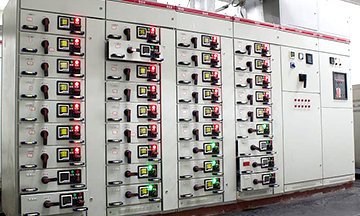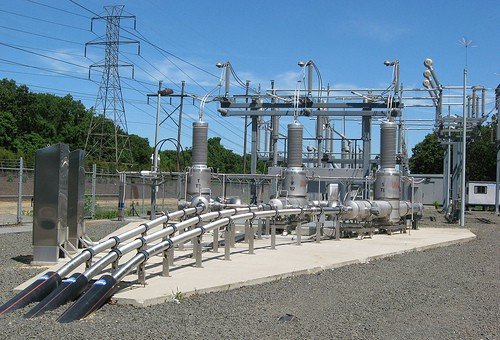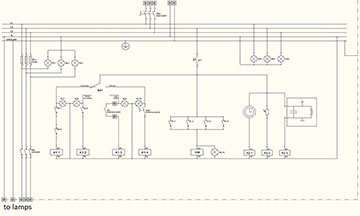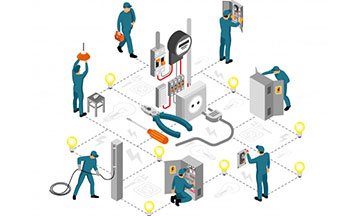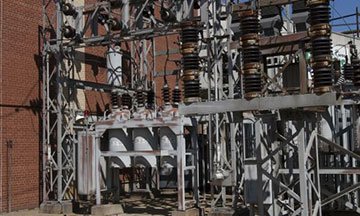Power Quality, Harmonics Mitigation and Reactive Power Management
| Date | Format | Duration | Fees | |
|---|---|---|---|---|
| 06 May - 14 May, 2024 | Live Online | 7 Days | $3147 | Register |
| 24 Jun - 26 Jun, 2024 | Live Online | 3 Days | $1750 | Register |
| 01 Jul - 19 Jul, 2024 | Live Online | 15 Days | $6745 | Register |
| 16 Sep - 20 Sep, 2024 | Live Online | 5 Days | $2250 | Register |
| 10 Nov - 14 Nov, 2024 | Live Online | 5 Days | $2250 | Register |
| 22 Dec - 30 Dec, 2024 | Live Online | 7 Days | $3147 | Register |
| Date | Venue | Duration | Fees | |
|---|---|---|---|---|
| 29 Apr - 17 May, 2024 | Dubai | 15 Days | $12525 | Register |
| 29 Apr - 03 May, 2024 | Dubai | 5 Days | $4750 | Register |
| 12 Jun - 14 Jun, 2024 | Dubai | 3 Days | $3950 | Register |
| 29 Jul - 16 Aug, 2024 | Vienna | 15 Days | $14925 | Register |
| 29 Jul - 02 Aug, 2024 | Dubai | 5 Days | $4750 | Register |
| 26 Aug - 30 Aug, 2024 | Dubai | 5 Days | $4750 | Register |
| 02 Sep - 06 Sep, 2024 | Kampala | 5 Days | $4950 | Register |
| 09 Sep - 13 Sep, 2024 | Dubai | 5 Days | $4750 | Register |
| 07 Oct - 11 Oct, 2024 | Dubai | 5 Days | $4750 | Register |
| 04 Nov - 08 Nov, 2024 | Dubai | 5 Days | $4750 | Register |
| 24 Nov - 28 Nov, 2024 | Doha | 5 Days | $4950 | Register |
| 02 Dec - 06 Dec, 2024 | Dubai | 5 Days | $4750 | Register |
| 08 Dec - 19 Dec, 2024 | Riyadh | 10 Days | $9150 | Register |
Course Overview
This course will dive into a detailed study of nonlinear loads, power waveform analysis, harmonics elimination mitigation techniques, voltage symmetry, and power harmonic issues.
What is harmonic mitigation?
Load variation greatly impacts electrical parameters such as the waveform, voltage symmetry, voltage magnitude, and frequency during operational hours. On the other hand, these parameters relate to electrical systems disturbances such as harmonic distortion and voltage instability which are largely attributed to certain equipment and electrical faults. Arch flashing and transient switching overvoltage are among the causes of these faults. Power quality is hugely dependent on harmonics mitigation techniques.
What are the mitigation devices for power quality improvement?
Semiconductor-based power electrical devices coupled with nonlinear loads, and other times rapid integration of non-conventional sources of energy into the power systems and networks causes power quality issues that in turn create harmful effects on the utility grid and industrial systems. Some of the semiconductor-based devices and systems are data servers, variable speed motors, big pieces of machinery, heavy-duty machinery handlers, heavy conveyor belts, a huge number of fluorescent bulbs, power electronic equipment. These devices and systems can cause major power quality issues on power grids and networks.
Continuous monitoring, detection, and recording of power quality major indicators is a must to ensure reliable and stable power networks. Specifically, monitoring of voltage and frequency fluctuations and their respective waveform distortions and power harmonics should be close.
Power quality is directly related to the reliability of any electrical device, system, or network. It also determines the performance of the intended functions of equipment, service life, and operation. Power quality degradation will impact the customer negatively and raise issues in power utilization. Poor and low power quality has been proven to lead to reduced efficiencies, increased risk of earlier failure time, and higher operational costs.
This course from Zoe Talent Solutions will handle the following aspects of power quality, harmonic mitigation & reactive power management issues:
• Power networks reliability and safety
• Surge protection
• Harmonic mitigation, monitoring, and recording techniques
• Ground looping
• UPS (Uninterrupted Power Supply)
• Power Network and Systems Disturbance resulting from Power Quality issues
• Power Quality Major Principles
• Terms and their definitions
• Analysis of steady-state voltage regulation
• Transient overvoltage control
• Voltage sags
Course Objectives
This skill-building course aims at empowering the participants to:
• Understand the influence of power fault clearing and current/voltage stability
• Analyse the various components of alternating current and understand their influence on power quality
• Use reliability indices developed and calculated by themselves
• Evaluate the effects of voltage fluctuations and their effect on electrical devices
• Understand terms used to describe power quality and reliability
• Interpret and understand different power quality incidents
• Use different harmonics mitigation methods
• Understand criteria for harmonic mitigation and filtering
Training Methodology
This course shall be delivered by a highly esteemed industry profession using different and unique learning techniques and methods that guarantee maximum understanding, retention, and information consumption. All the necessary theories, practical lessons, and equations shall be facilitated. All the participants are encouraged to be part of a two-way participation program that will be utilised in this course involving group activities, projects, case studies, role-plays, etc.
Organisational Benefits
Organisations that will have participants in this course shall expect to benefit as follows:
• Safe operation of organisation’s equipment and installations
• Cut down and eliminate unnecessary maintenance costs that come from power disruption
• Effective and accurate grounding and bonding managed by experienced and well-trained professionals
• Regular training of fellow employees on harmonic concepts and power quality management techniques
• Organisational growth and improvement will come from better and more accurate power harmonics analysis and power quality assurance
• Adherence to regulation and necessary legislation
• Destructive effects of power harmonic on electrical equipment familiarisation
• Effective and structured approach and understanding of power quality issues by well-trained professionals
Personal Benefits
Participants that will take up this course will greatly benefit because they will be able to:
• Comprehensively understand all the aspects of analysing power quality
• Have better information and understanding of voltage control and frequency control techniques
• Have advanced analytical and strategic skills to evaluate and secure power systems
• Have greater knowledge of new and improved methods for analysing and handling voltage and frequencies disturbances
• Increased confidence and knowledge to train other employees on power quality issues
• Better awareness of heavy-duty machinery and how it greatly affect power quality
Who Should Attend?
• All professionals involved in the designing, planning, maintenance, and commissioning of power systems
• Design Engineers to incorporate great power harmonics handling devices and techniques into their designs
• Planning Engineers to have the necessary skills to plan for harmonics mitigation and power quality assurance
• Project managers responsible for the implementation of power systems
• Employees that are in positions that are directly involved with power quality control and harmonics mitigation
• System operators that ensure harmonics are mitigated in a power system
• Managers responsible for power quality and harmonics mitigation
Course Outline
Module 1: Transient Voltage Excursions
• Voltage sags
• Voltage abnormalities and mitigation methods
• Loads imbalance
• Voltage symmetry
• Voltage flicker
• Motor starting
• Capacitor switching
• Ferro resonance
• Lightning grounding
• Lightning shielding
Module 2: Quality Overview
• Voltage disturbance
• Frequency disturbance
• Power factor improvement
• Power factor compensation
• Voltage distortion
• Power quality evaluation
• Limitations of power systems parameters
• Electrical Power factor
Module 3: Power Quality Issues
• A look into power quality
• Power quality determination
• Drawing ITI curve
• Power disruptions causes
• Causes of Voltage sags
• Reliable power quality
Module 4: Power System Reliability
• UPS (Uninterrupted Power Supply) types
• Power system automation
• Power system redundancy
• Power interruptions
• Equipment failure
• Power system reliability
Module 5: Effects of fault clearing
• Fault clearing
• Fuse-blowing philosophy
• Fuse saving techniques
• Reclosing
• Interpreting reliability indicators
• IEEE reliability indices
Module 6: Power Harmonics
• Harmonics Mitigation Techniques
• Harmonic analysis and control
• Power system tolerance to harmonics
• Impacts of harmonics on power network and devices
• Harmonic filters
• Harmonic relation with distortions
• Linear versus nonlinear loads
• K-factor transformers
• AC power and power factor
Module 7: Steady-state voltage, Insulation, and Arresters
• Insulation systems
• Arresters selection
• Effects of steady-state current and voltage on normal load system operation
• Basic impulse level
• Insulation testing
• Load changers and voltage regulators
Module 8: Grounding systems and surge protection
• Lightning
• Surge arrestors
• Impedance earthed
• Surge definition and causes
• Bonding grounding systems
• Mitigation surges
• Solidly earthed
• Resistance earthed
• Transient overvoltage
• Power system grounding techniques
• Mitigation of surges
• Bonding of grounding systems
Module 9: Power Quality
• Loads that reduce power quality
• Series power filters (active)
• Power quality compensators
• Series compensation: DVR (active)
• Hybrid power filters (active)
• Power filters (Passive)
• Active shunt compensation: DSTATCOM
• Power quality standards and monitoring
• AC-DC converters that reduce power quality
• Improved power quality converters
• Shunt power filters (active)
Module 10: voltage quality
• Voltage inference definition
• Transients
• Voltage fluctuations and their effects
• Short-term variation durations and their effects on power lines
• Long-term variation and their effects on power lines
• Symmetrical imbalances
• Supply network balance improvement
• Limiting imbalance recommendations
• Imbalance indicators
• Causes of imbalance
• Sources of reactive power
• Bank capacitor calculations
• Advantages of power factor improvement
• System characteristic response





